Shellfish deaths: Government to examine toxic chemical study
- Published
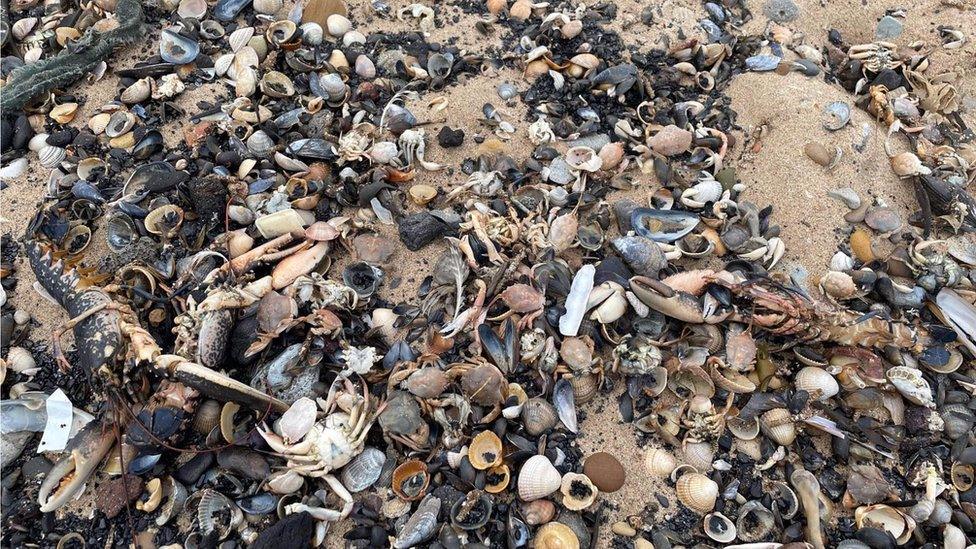
Thousands of dead crabs and lobsters have washed up along the North East coast since October 2021
A minister has said he will "seriously" consider a study that claimed a toxic chemical was more likely to have caused mass shellfish deaths than algae.
Fishermen on the North East coast have said their industry has been devastated by large wash-ups of dead crustaceans.
A study by several universities commissioned by the fishing industry said pyridine, which could have been released by dredging, was more likely.
Mark Spencer MP said any evidence "should be examined properly".

Fisheries minister Mark Spencer said the government needed to look at the evidence from the new study
The £30,000 study was commissioned by the North East Fishing Collective following a crowdfunding appeal and carried out by academics at Newcastle, Durham, York and Hull universities.
It found pyridine, which is used as an anti-corrosion treatment in marine infrastructure, was "highly toxic" to crabs "even at low levels".
The chemical was observed to cause twitching, paralysis and then death, which was similar to witness reports made at the time of the mass wash-ups.
It said a source of pyridine "remained to be identified" but it was a "common industrial chemical and at least one Teesside industrial plant is known to have handled large amounts of it before 2019".
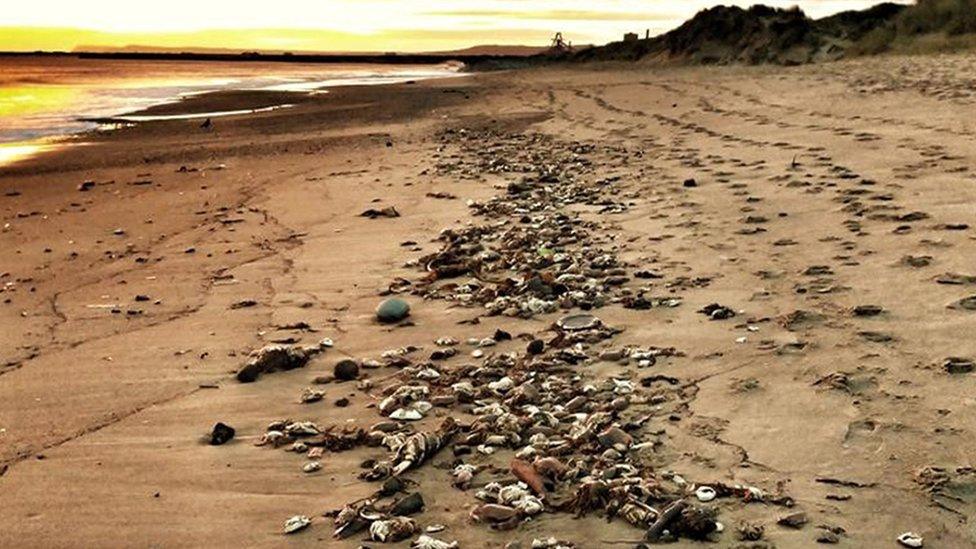
Thousands of crustaceans were found along the coastline including at Seaton Carew
Fisheries minister Mr Spencer, the Conservative MP for Sherwood, said: "These are credible universities which have carried out that research, we need to take that seriously.
"The fact this has happened again, at this time of year, does indicate it's possibly an algal bloom, which is what the science has told us in the past.
"But we will listen to any research and any evidence. I think we all want the same outcome which is to stop these crustaceans from dying."
'Comprehensive investigation'
Marine pollution expert Tim Deere-Jones had also previously used Environment Agency data to conclude pyridine levels in some of the crab samples from the wash-ups were 70 times higher than in crabs from other areas.
Mr Spencer said his department would work with the Centre for Environment, Fisheries and Aquaculture (Cefas) - the government's scientific arm - which did the examination work.
A Defra spokesperson previously said: "A comprehensive investigation last year... concluded a naturally occurring algal bloom was the most likely cause.
"We recognise the concerns in regards to dredging, but we found no evidence to suggest this was a likely cause."

Follow BBC North East & Cumbria on Twitter, external, Facebook, external and Instagram, external. Send your story ideas to northeastandcumbria@bbc.co.uk, external.
- Published29 September 2022

- Published31 August 2022
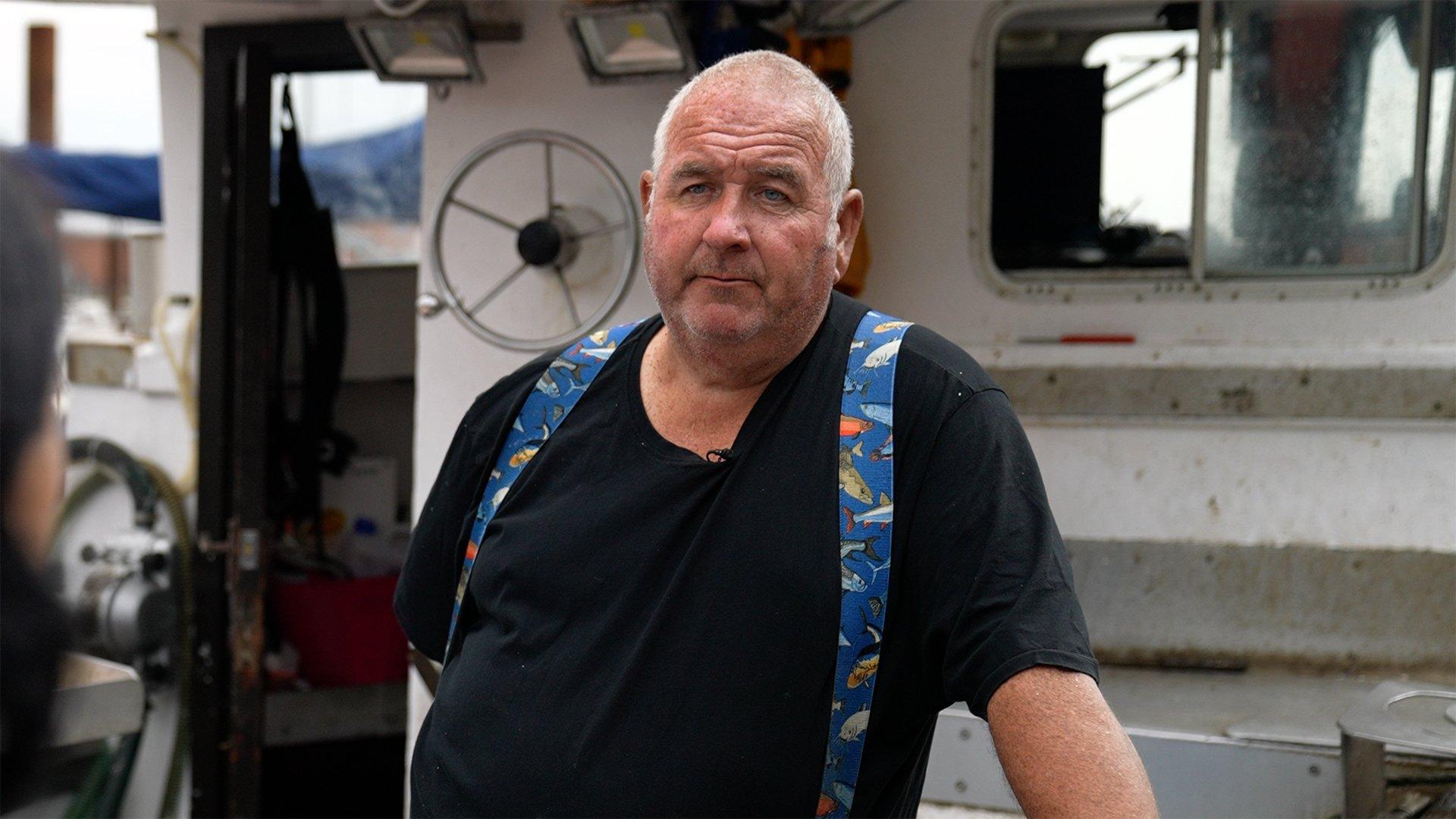
- Published8 August 2022
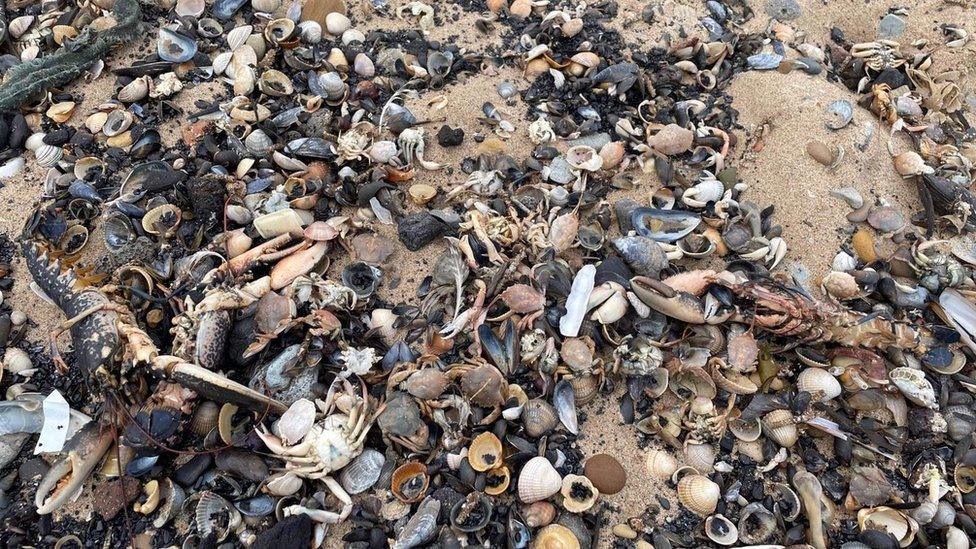
- Published25 October 2021
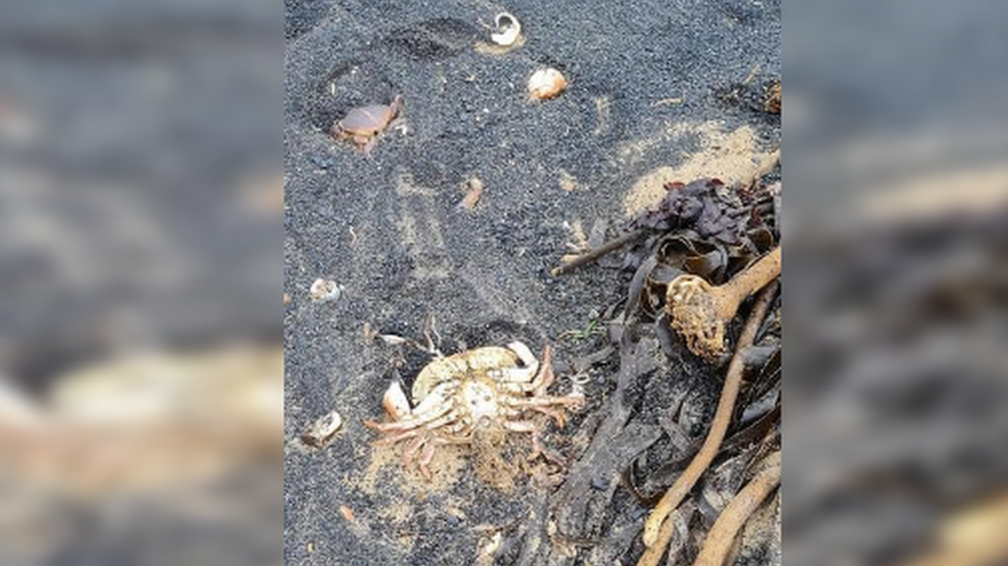
- Published5 February 2022
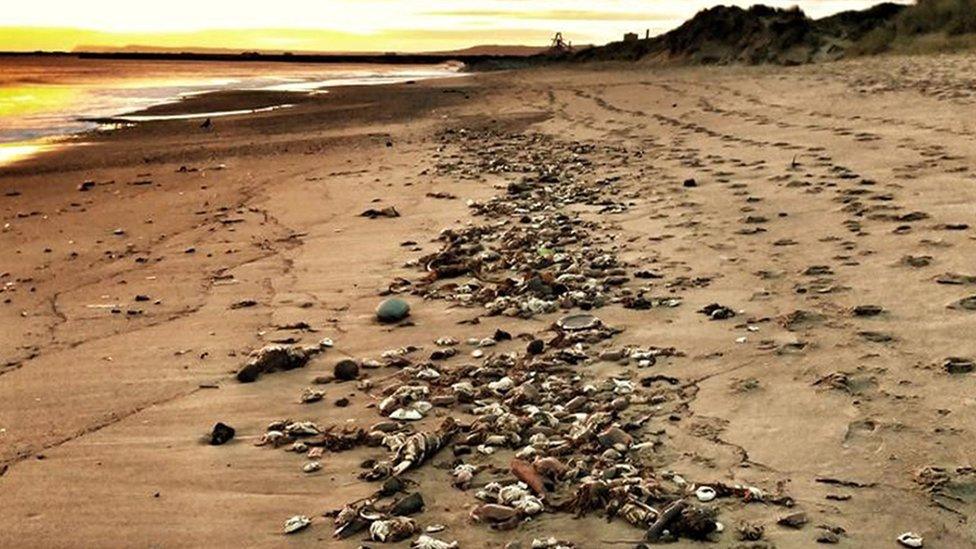
- Published21 January 2022
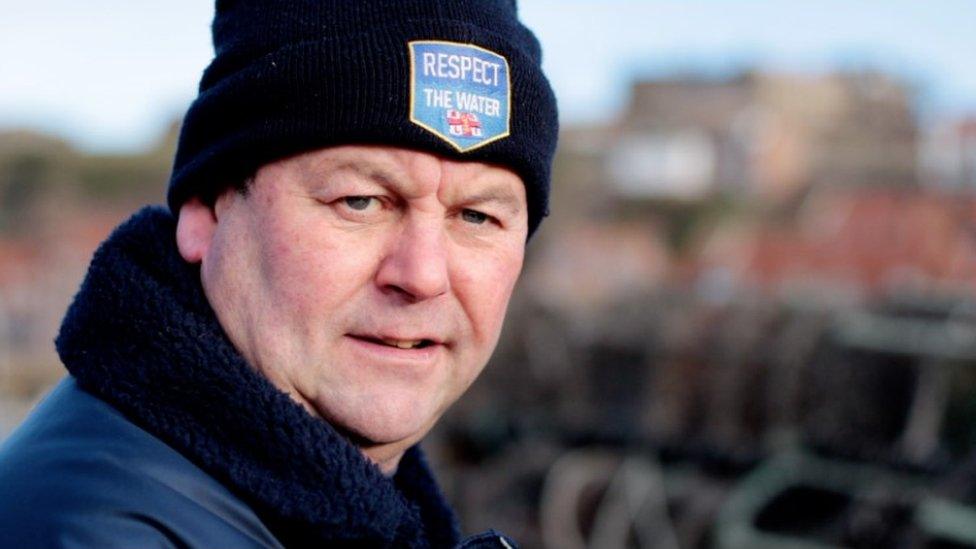
- Published4 November 2021
